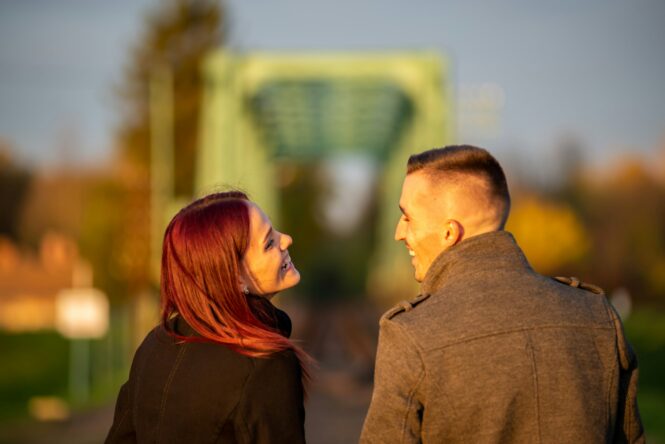Do you ever find yourself wondering why every person you date seems oddly similar?

Maybe not in looks, but in behaviour, energy, or the emotional rollercoaster that comes with them is eerily like every other partner you’ve ever had. There’s a reason so many people feel stuck in romantic deja vu. A lot of times, it’s not just about attraction—it’s about comfort, wiring, and what your subconscious believes is “familiar.” However, you can absolutely change the script. First, you need to understand why the cycle exists. Then, you can start choosing from a place of self-awareness, not old wounds.
1. Familiar dysfunction feels weirdly safe.

We don’t just look for love—we pursue what feels emotionally familiar. If chaos, emotional unavailability, or over-functioning for other people is what you grew up with, those things can quietly become your baseline for “connection.” That doesn’t mean you’re some sort of masochist who enjoys pain. It means your nervous system is trained to interpret unpredictability as normal. Until you unlearn that pattern, you’ll keep mistaking instability for chemistry.
2. You confuse intensity with intimacy.

If past relationships were full of highs and lows, anything calm can feel dull. You might mistake butterflies for passion when they’re actually anxiety in disguise. Real intimacy builds gradually. It feels steady, not suspenseful. However, if you’re used to intensity, you may keep gravitating toward people who create emotional drama rather than deep connection.
3. You choose people based on who you think you “should” be with.

Sometimes, your type is built around old ideas—who your family would approve of, what friends expect, or who looks good on paper. You end up filtering potential partners through someone else’s lens. This leads to relationships that feel performative or unfulfilling. When you’re dating someone to meet an ideal instead of connecting with your real self, it becomes hard to know what you actually want.
4. You fall for the same emotional dynamic in different disguises.

You might swear you’ve changed your type, but the emotional pattern repeats. The new person looks different, talks differently, or has a new career, but somehow, you’re still the one overgiving, under-supported, or emotionally chasing. It’s not about the person—it’s about the role you keep finding yourself in. When you address the emotional template instead of just the surface traits, things start to change.
5. You mistake “connection” for caretaking.

If your self-worth is tied to being needed, you’ll likely be drawn to people who require saving, fixing, or constant reassurance. It makes you feel valuable, but it also wears you out. This can lead to one-sided relationships where your needs are always on the back burner. Love shouldn’t require you to be someone’s therapist to feel secure.
6. Your type is built on a fear of rejection.

You might chase emotionally distant partners because winning their affection feels like proof you’re worthy. It becomes a reward system—one where the goal is “being chosen,” not being genuinely connected. This sets you up for a cycle of chasing validation instead of receiving real, grounded care. You’re always performing. Never just resting in love that shows up without being chased.
7. You confuse spark with compatibility.
 Source: Unsplash
Source: Unsplash That instant click can feel magical, but it can also be misleading. Sparks don’t always mean you’re well-matched—they often just mean your familiar patterns have been activated. True compatibility isn’t always immediate. It reveals itself over time, through how someone treats you, listens to you, and shows up when things aren’t easy.
8. You replay unfinished emotional business.
 Source: Unsplash
Source: Unsplash Sometimes we date people who resemble someone from our past—not because we’ve processed that relationship, but because we haven’t. Your brain tries to “fix” old wounds through new people. This creates a loop of unconsciously seeking out similar dynamics in hopes of getting a different ending. However, healing doesn’t come from repetition. It comes from stepping outside the pattern entirely.
9. You’re more attracted to the chase than the relationship.
 Source: Unsplash
Source: Unsplash For some people, the pursuit is where all the energy lives. Once the relationship stabilises, the interest fades. You start looking for that high again with someone new. This often stems from deeper fear—of boredom, vulnerability, or not knowing what love looks like when it’s no longer a game. Learning to sit in stability is the real challenge.
10. You ignore red flags because they feel normal.
 Source: Unsplash
Source: Unsplash Someone might show you who they are early on, but if your emotional blueprint is used to being dismissed or walking on eggshells, those red flags might barely register. It’s not that you’re blind—it’s that your wiring tells you this is just how relationships feel. But once you start healing, what used to feel familiar starts to feel wrong instead of romantic.
11. You don’t give yourself time to choose consciously.
 Source: Unsplash
Source: Unsplash Attraction can be powerful. However, if you move fast, whether mentally or emotionally, you might find yourself committed before you’ve really seen who the person is when the dust settles. Taking your time gives you space to notice how someone responds to boundaries, conflict, and your full self. Attraction might bring them in, but patience shows you if they’re actually good for you.
12. You keep picking people who reflect how you feel about yourself.
 Source: Unsplash
Source: Unsplash If you carry self-doubt or believe deep down you’re hard to love, you may unconsciously pursue people who confirm that story. They treat you inconsistently, and it reinforces what you already believed. When your self-worth grows, your standards do too. You stop craving people who feel like a challenge and start recognising the value in people who make love easy and honest.
13. You keep your checklist too rigid.
 Source: Unsplash
Source: Unsplash Having values is good—but some people fall into the trap of having a fixed “type” based on superficial criteria. They need to be this tall, this successful, this funny… and suddenly, half the population is off the table. That list often protects you from risk more than it guides you to connection. Expanding your lens doesn’t mean settling—it means making space for people who might surprise you in the best ways.
14. You haven’t yet felt safe enough to try something different.
 Source: Unsplash
Source: Unsplash Breaking the cycle requires emotional safety. You have to believe that love can look and feel different before you stop reaching for what’s familiar. Sometimes, the fear of the unknown keeps you in the loop. Once you experience calm, respectful, reliable love—even if it starts off feeling “weirdly boring”—you begin to realise that safety isn’t boring. It’s the thing that makes everything else possible.


